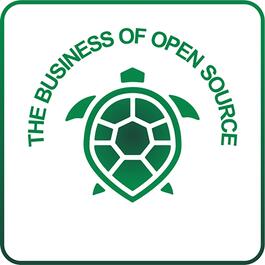
Applying the lessons from Docker with Solomon Hykes
This week on The Business of Open Source, I have the first episode I recorded on-site at KubeCon Salt Lake City (and the only full-length episode), with Solomon Hykes, CEO and co-founder of Dagger, and co-founder of Docker. One thing Solomon mentions briefly but that is very important is that there are limits to what can be learned from Docker’s story, simply because the situation was so unique. Docker experienced explosive growth, at least some of which was due to having the right technology at the right time. This kind of explosive growth is very rare, though, and it brought it’s own set of challenges. The point being that while most companies will struggle to get enough adoption, Docker struggled to monetize effectively but got so many chances to try again just because it had a massive community. The hypothesis — or actually, lack thereof — behind creating the original Docker open source project. How having a massive community does help — but also doesn’t guarantee you’ll be able to build a financially sustainable companyWhen you build a massively successful technology or standard, you’ll attract competition — and in the case of Docker, the competitors were savvy companies who’d won the previous cloud wars and ultimately were quicker to figure out how to monetize Docker containers than Docker itselfWhat Solomon is doing differently at Dagger compared to Docker, one of which is thinking about monetization much soonerThe open source movement was founded on such explicitly anti-commercial principles that companies building in the space would often not be intellectually honest about the fact that they were building both a software to give away for free as well as a business that needed revenue. Docker tried too hard to please everyone, including those who felt that open source should be pure and non-commercial — at Dagger, they’re much more transparent and upfront about the fact that it’s a company with commercial ambitions. Solomon also talked about the difference between components and product, and how designing products requires control, including the ability to just say no without explaining yourself. ### It was fascinating to hear Solomon talk about the lack of intellectual honesty around who pays for the development and maintenance of a lot of open source projects, because that precise topic was the focus of two panels I moderated at KubeCon, one during the main conference and one during CloudNative StartupFest. If you’re struggling to articulate how your product and project are different from each other (and others in the ecosystem) and why someone should pay you, you might want to work with me. Reach out!
From "The Business of Open Source"


Comments
Add comment Feedback